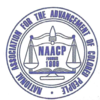Education’s Office Of Postsecondary Education Announces Public Hearings On Protections For Students, Loan Repayment And Other Higher Education Regulations

The U.S. Department of Education’s Office of Postsecondary Education announced today that it will hold virtual public hearings on June 21, 23, and 24 to receive stakeholder feedback on potential issues for future rulemaking sessions.
These issues include borrower defense to repayment for students harmed by their colleges’ misleading practices and gainful employment requirements to protect students and taxpayers from poor-performing programs. They also include loan repayment and improving the rules governing targeted student loan cancellation authorities for borrowers engaged in public service, with disabilities, or whose institutions close, among other topics.
This process of issuing new regulations reflects the Department’s commitment to serving students and borrowers well and protecting them from harmful programs and practices that may derail their postsecondary and career goals.
“The Department of Education’s primary responsibility is to serve students and borrowers,” said Education Secretary Miguel Cardona. “That means taking a fresh look at a range of regulations to make sure they are not creating unnecessary barriers, but instead can ensure that institutions and programs serve our students well.”
The Department is interested in comments on regulations that would address gaps in postsecondary outcomes, such as retention, completion, student loan repayment, and loan default. Specific consideration to disparate impacts by income, race/ethnicity, gender, and other demographic characteristics is encouraged.
Today’s announcement is the first step in the process of issuing new regulations. Following the public hearings, the Department will solicit nominations for non-federal negotiators who can serve on the negotiated rulemaking committees, which will convene in late summer 2021.
The Department suggests the following topics for regulation in the hearing notice but invites comment on any regulatory issue that that can improve outcomes for students, especially borrowers. Potential topics may include:
Ability to benefit
Borrower defense to repayment
Certification procedures for participation in federal financial aid programs
Change of ownership and change in control of institutions of higher education
Closed school discharges
Discharges for borrowers with a total and permanent disability
Discharges for false certification of student eligibility
Financial responsibility for participating institutions of higher education, such as events that indicate heightened financial risk
Gainful employment
Income-contingent loan repayment plans
Mandatory pre-dispute arbitration and prohibition of class action lawsuits provisions in institutions’ enrollment agreements
Pell Grant eligibility for prison education programs
Public service loan forgiveness
Standards of administrative capability
The Department is aware of likely stakeholder interest in regulations in response to the Fiscal Year 2020 appropriations bill, which made changes to the 90/10 rule to require that private for-profit institutions derive at least 10 percent of their revenue from non-federal sources like the Department’s federal financial aid programs and benefits for veterans and military servicemembers. By law, the Department may not begin regulatory activity on this provision until October 1, 2021.
The hearings will be held from 10:00 AM – 12:00 PM and 2:00 PM – 4:00 PM (EST) on June 21, 23, and 24. Individuals who would like to make comments at the public hearings must register by sending an email message to negreghearing@ed.gov no later than 12:00 PM (EST) on the business day prior to the public hearing at which they wish to speak. The message should include the name and email address of the speaker, the general topic(s) to be addressed, and at least two dates and times during which the individual would be available to speak.
The Department will attempt to accommodate each speaker’s scheduling preference; however, if we are unable to do so, determinations will be made on a first- come first-served basis, based on the registration submission time and date. Participant’s comments will be limited to three-to-five minutes. Individuals who wish to view the hearings without providing comment must register for each day they wish to observe.
Further information on the public hearings is available here. More on the negotiated rulemaking process is available
Please support The Community Times by subscribing today!
You may also like:







